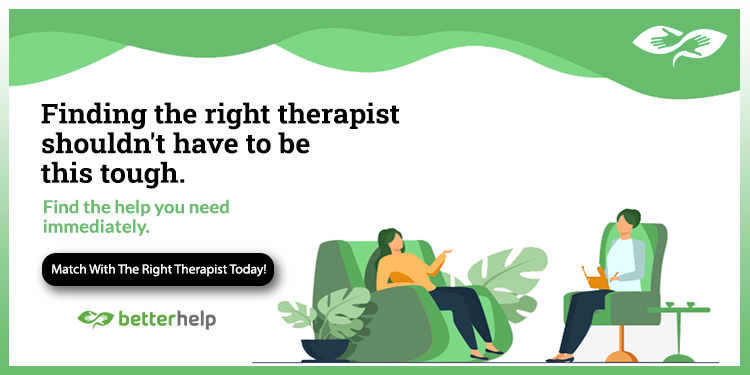Authentic living – You’re Allowed to Outgrow People, Even Family
Authentic living. The discomfort surfaces during holiday gatherings, phone calls that feel increasingly obligatory, or conversations where you carefully filter your thoughts and experiences. Something has shifted. The connection that once felt natural now requires effort, performance, contraction. You’ve outgrown someone important in your life—perhaps even family—and the recognition brings a complex mixture of grief, guilt, and relief.
This experience, while rarely discussed openly, is remarkably common. Many people struggle silently with the realization that relationships once central to their lives no longer fit who they’ve become. The discomfort this creates often manifests physically—tension gathering in shoulders during family gatherings, breath becoming shallow during certain conversations, energy depleting after interactions that once felt enlivening.
I work with a woman who described a literal sensation of shrinking whenever she spent time with her childhood friends. “I can feel myself getting smaller,” she explained, “returning to who I was at sixteen rather than who I am at thirty-six.” Her body would physically contract—shoulders rounding, voice rising in pitch, gestures becoming more tentative—as she unconsciously adapted to outdated expectations and dynamics.
These bodily responses offer important information. Our tissues hold wisdom that often precedes conscious recognition. The heaviness in your chest when contemplating certain gatherings, the tension headache that reliably follows certain interactions, the subtle relief that flows through your body when plans are canceled—these sensations illuminate growing incongruence between who you’ve become and relationships that no longer accommodate your evolution.
Family relationships often create particular complexity around outgrowing. The entanglement of shared history, blood ties, and cultural expectations about family loyalty creates a powerful undertow against the current of personal growth. Many cultures explicitly or implicitly teach that family relationships should supersede individual needs, that blood connections deserve endless accommodation regardless of their impact on wellbeing.
One client struggled profoundly with recognizing he’d outgrown his relationship with his brother. Though their interactions had become increasingly strained and unsatisfying, he felt physically ill contemplating creating distance. “It feels like I’m cutting off my own arm,” he explained. This visceral reaction reflected deeply embedded beliefs about family as an extension of self, making boundaries feel like self-amputation rather than necessary self-care.
The process of outgrowing happens for various reasons. Sometimes it reflects developmental progression—the natural evolution of values, perspectives, and priorities that occurs throughout adulthood. Other times it emerges from healing work, as we shed adaptations that once protected us but now limit authentic expression. Still other instances reflect growing clarity about dynamics that always were unhealthy but that we lacked the perspective or resources to recognize earlier.
This natural process often triggers shame. We’ve absorbed messages that “good people” maintain all relationships indefinitely, that ending connections reflects failure rather than growth. Yet just as your body naturally outgrows clothes that once fit perfectly, your evolving self legitimately outgrows relationships that no longer accommodate who you’re becoming.
Why not kill the ego?
Try this experiment: Think of a relationship where you sense you’ve outgrown the connection. Notice what happens in your body as you imagine your next interaction with this person. Where do you feel contraction or tension? What parts of yourself do you automatically prepare to hide or minimize? What aspects of your current life, values, or beliefs would you carefully filter from conversation? This awareness reveals the bodily cost of maintaining connections that no longer fit.
The recognition that you’ve outgrown someone doesn’t necessitate dramatic confrontation or complete severance. Many outgrown relationships naturally find new forms if we allow them to shift. The transition often begins with internal permission—acknowledging to yourself the truth of your experience without immediately demanding external change.
One helpful practice involves consciously tracking the energy exchange in different relationships. After interactions, notice: Did this connection leave you feeling energized or depleted? Did you experience genuine interest in the other person, or were you performing expected engagement? Were you able to be present, or did you find yourself dissociating or watching the clock? These observations help clarify which relationships still offer mutual nourishment and which may need redefinition.
Physical practices can support navigating this terrain. Many find that consciously grounding before difficult interactions helps maintain connection to their authentic self. Try this: Before engaging with someone you’ve outgrown, stand with your feet hip-width apart, feeling the solid support of the ground beneath you. Take several deep breaths into your lower abdomen, imagining roots extending from your feet into the earth. This simple practice helps counteract the tendency to abandon your center in challenging dynamics.
Working with a woman navigating growing distance from her childhood best friend, we developed a practice of “compassionate witnessing.” Rather than judging her discomfort or forcing continued closeness, she would notice with kindness both her genuine care for her friend and the growing disconnect between their lives. This dual awareness created space for the relationship to find its natural evolution without premature cutting off or artificial maintenance.
Another client discovered that adjusting his expectations allowed a relationship with his father to find a more sustainable form. Rather than continuing to seek emotional intimacy that wasn’t possible, he recognized the genuine connections that could exist—shared interest in baseball, appreciation for his father’s practical knowledge, brief but pleasant holiday gatherings. This recalibration reduced disappointment while honoring the connection that remained viable.
The grief that accompanies outgrowing important relationships deserves acknowledgment. Even when distance clearly serves wellbeing, loss remains real. Many people find relief in creating small rituals that honor what the relationship provided while recognizing its completion or transformation. One woman wrote a letter (never sent) expressing gratitude for what her former friend had offered during a crucial period of her life, then burned it in a small ceremony that helped her body register both appreciation and completion.
Family estrangement brings particular challenges given strong cultural messaging about family obligation. Yet sometimes creating distance from family members becomes necessary for genuine wellbeing. This decision rarely comes easily and often follows years of effort toward repair. When patterns of interaction consistently undermine your fundamental sense of worth, safety, or integrity, distance may represent healthy self-preservation rather than failure of compassion.
A man who ultimately limited contact with his emotionally abusive mother described the physical relief he experienced after creating boundaries: “It was like putting down a heavy backpack I’d been carrying so long I forgot it was there.” His breathing deepened, chronic tension in his shoulders eased, and sleep improved—embodied evidence that the relationship as previously constructed had exacted significant physiological costs.
The journey of consciously outgrowing relationships involves developing discernment about which connections can evolve alongside you and which may need to be released or substantially reimagined. Some questions worth exploring: Does this relationship allow me to show up authentically or require significant self-contraction? Do interactions consistently leave me feeling depleted rather than nourished? Have repeated attempts to shift the dynamic been met with resistance or denial? Does maintaining this connection in its current form require compromising my values or wellbeing?
As you navigate this territory, remember that allowing relationships to evolve or end creates space for connections that more fully support who you’re becoming. Many find that as they release the obligation to maintain outgrown relationships, new connections naturally emerge that better reflect their current values, interests, and authentic expression.
The permission to outgrow—even family—ultimately offers freedom not just to you but to others as well. Relationships maintained through obligation rather than genuine connection rarely serve anyone’s deepest wellbeing. Creating space for authentic evolution honors the truth that healthy attachment includes both connection and autonomy, both loyalty and growth, both appreciation for what was and honest recognition of what is.

Keywords: Authentic living, Anxiety, polyvagal theory, gestalt therapy, psychotherapy, parents, parental trauma, somatic experiencing, Licensed therapist near me in Manhattan NYC, Affordable therapy services in New York State, Holistic psychotherapy sessions in NYC, Somatic Experiencing therapy for trauma recovery in New York City, NARM therapy in Brooklyn, Licensed couples therapy in Manhattan, Gestalt therapy near me in NYC, Marriage counseling in Queens NYC, Therapy for anxiety treatment in NYC, Experienced psychotherapist in New York, Licensed psychotherapist near me in NYC, Somatic Experiencing therapy sessions in New York, Trauma therapy and counseling in Manhattan, Gestalt therapy sessions in New York City, Therapy sessions for emotional regulation in New York, Trauma therapy near me in Brooklyn New York, Licensed mental health therapist in Manhattan NYC, Depression therapy in New York, New York City therapist experienced in PTSD treatment
Contact us: Feel and Heal Therapy Office
For companies: Creative Manager
Frustration and its crucial role in mental growth








